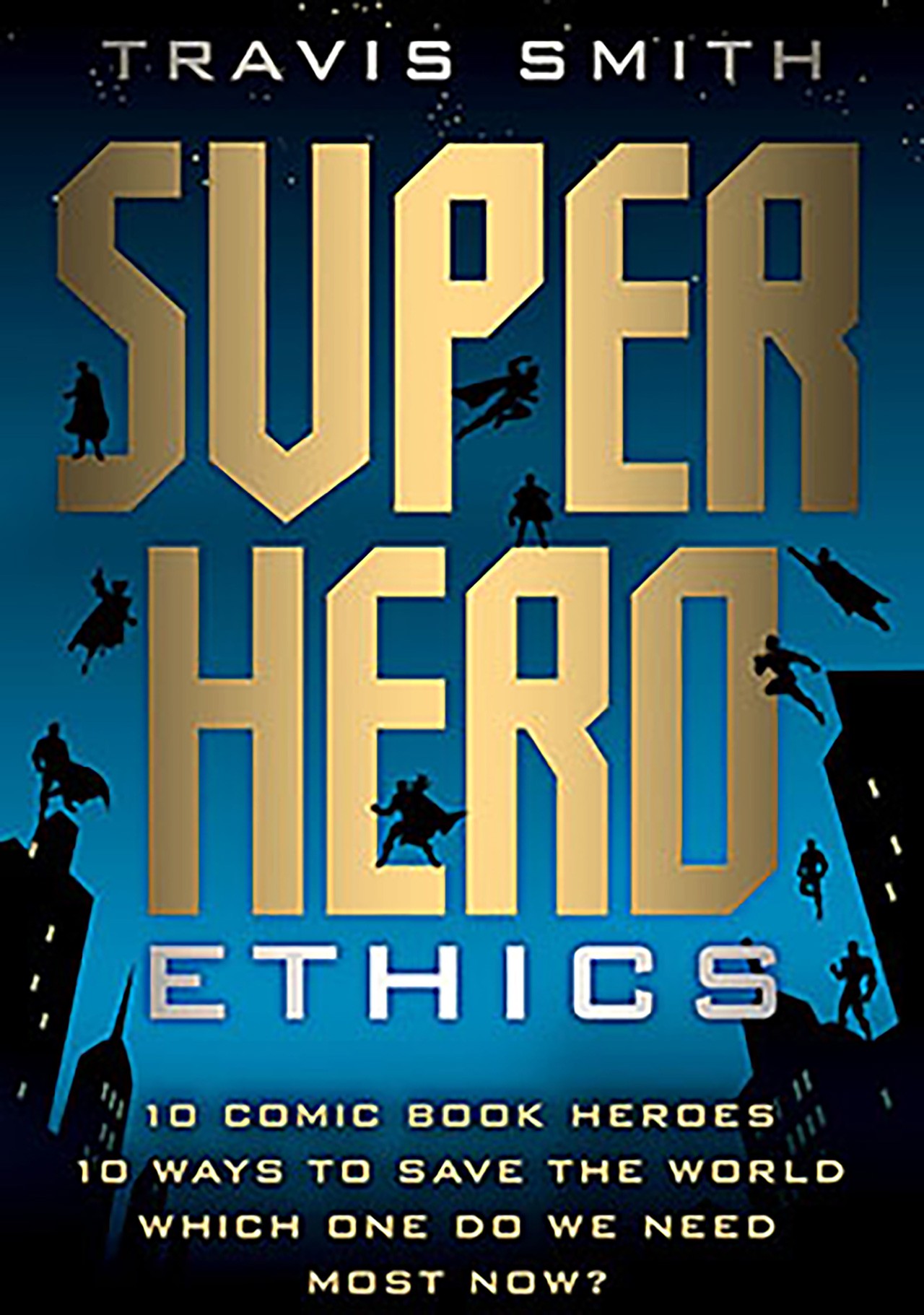Unleash your inner superhero

What can fictional superheroes teach us about navigating our lives? That’s the question professor Travis Smith’s new book attempts to answer.
“As someone who teaches political philosophy, ancient and modern, I am always looking for ways to make old ideas and arguments seem relevant and familiar to my students,” says Smith, an associate professor in the Faculty of Arts and Sciences’s Political Science department.
Superhero Ethics: 10 Comic Book Heroes; 10 Ways to Save the World; Which One Do We Need Most Now? starts from the premise that superheroes can provide telling insights into how we approach life and build character as individuals.
The book then pits famous superheroes against one another to see which hero can best answer a philosophical question (example: The Hulk vs. Wolverine - How can we overcome our beastly nature and preserve our humanity?).
By the end of the book, a single superhero will emerge victorious as the hero we need for our time, in a climax publishers promise will surprise readers and provoke thought long after the book is over.
 Professor and author Travis Smith
Professor and author Travis Smith
“Given the success of superhero movies and television shows these days, students are more familiar with these characters than ever before--meaning that they provide an excellent resource to draw upon when trying to examine our intellectual traditions and understand our present-day situation,” says Smith.
“Writing this book gave me an opportunity to conduct a sustained analysis of what the popularity of superhero stories says about us, and to us, today.”
The book’s use of a contemporary cultural medium to examine real-life philosophical questions is in line with Concordia’s Strategic Directions, which encourage educators to ‘mix it up’.
The book is currently available online on Amazon and sales are brisk – the hardcover copy was # 1 on Amazon this week in the category of Social Philosophy.
“I am pleased to see the book doing well, and hope it gets readers thinking about which putative role models are actually worthy of our admiration,” Smith says.
So, while you might not be able to wear a mask or a cape to the office, there’s a way for you to unleash your inner superhero in everyday life, using wisdom straight out of the comic book universe.
 A movie still from 'Iron Man 2', courtesy of Marvel Studios / Paramount Pictures
A movie still from 'Iron Man 2', courtesy of Marvel Studios / Paramount Pictures
The following is an excerpt from Superhero Ethics: 10 Comic Book Heroes; 10 Ways to Save the World; Which One Do We Need Most Now? This section examines the character of Iron Man.
With his half-Italian- and half-German-sounding name, Tony Stark sounds like the love child of an Axis Powers romance. His name roughly but fittingly translates as “powerful preventer,” or “keen anticipator,” or maybe “potent precedent.”
There were signs of ethical ambiguity in Iron Man’s character from the get-go. Before becoming Iron Man, Tony Stark made a morally dubious livelihood as an arms dealer. He is vain and ostentatious, arrogant and cocky, and unapologetically debauched. He puts his family name on all his corporate brands, inviting himself into the home of virtually everyone in the industrialized world. The Stark Expo is more lavish than the World’s Fair. He forgoes his secret identity because he wants the world to know that he, Tony Stark, is Iron Man. He wants full recognition for his valiant deeds as well as for his business acumen and space-age wizardry. In Iron Man 3 (2013), Tony attends a party wearing a name tag that reads, “You know who I am”—a gag that is not only egotistical but evocative, with both divine and diabolical connotations.
Tony trusts that he can overcome any obstacle, avert any catastrophe, and fix any problem he faces—including those he inadvertently causes. So he tends to be not all that careful. His nickname is Shellhead, suggesting a mind full of destructive force, ready to burst. Tony’s faith in technology is coextensive with his faith in himself. He personifies the way the modern technological project is prepared to take great risks in pursuit of the elimination of risk. Those surrounding him react with something like bemused awe at his talents: Bruce Banner accuses Tony of heeding as a personal motto, “Let’s just try things because we can” (Avengers #17, October 2013); in his first film, his former business partner, Obadiah Stane, describes his approach to life as “ready; aim; fire.” Stark even briefly led a team in the 1990s called Force Works—a succinct way to express his creed.

